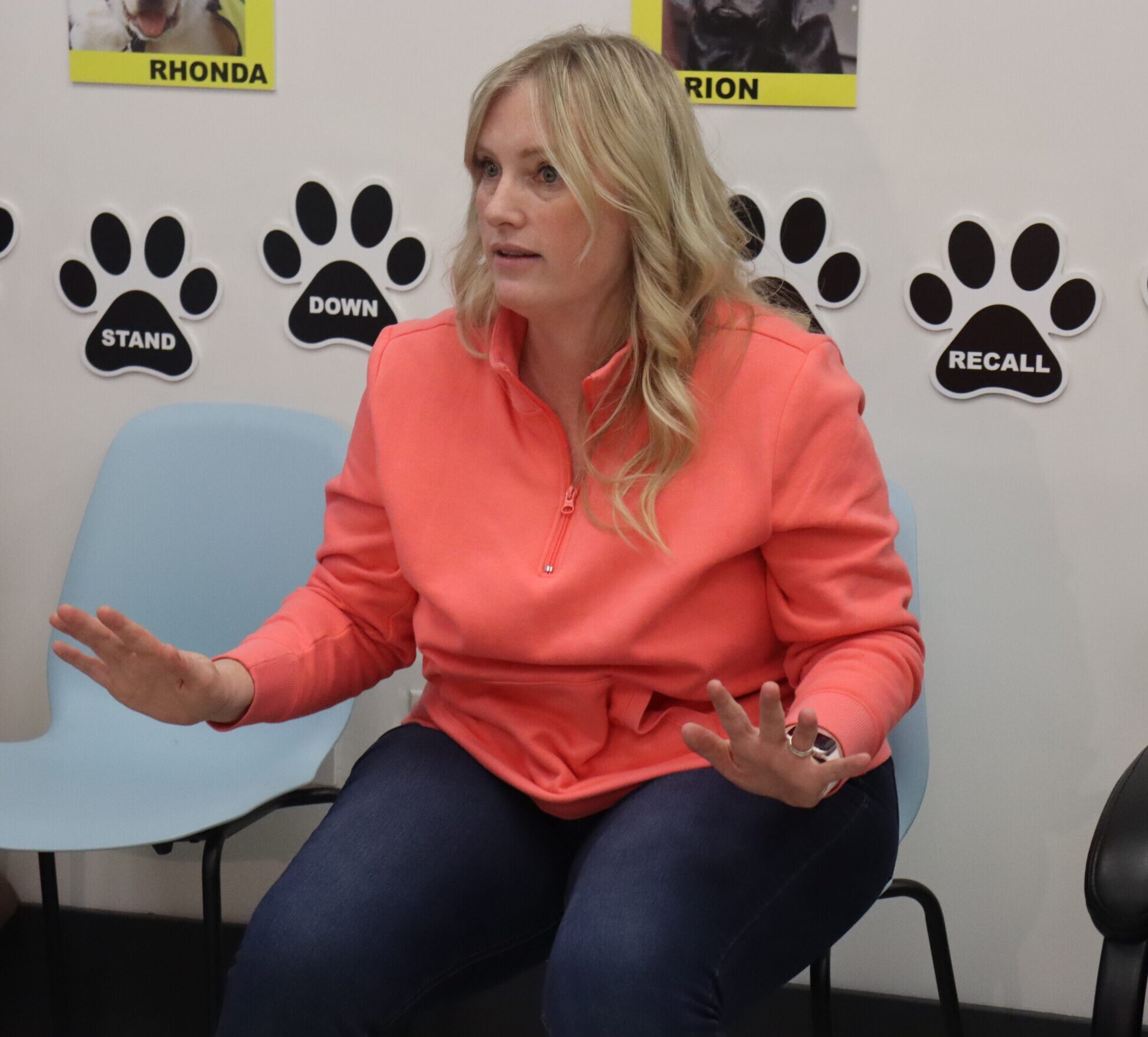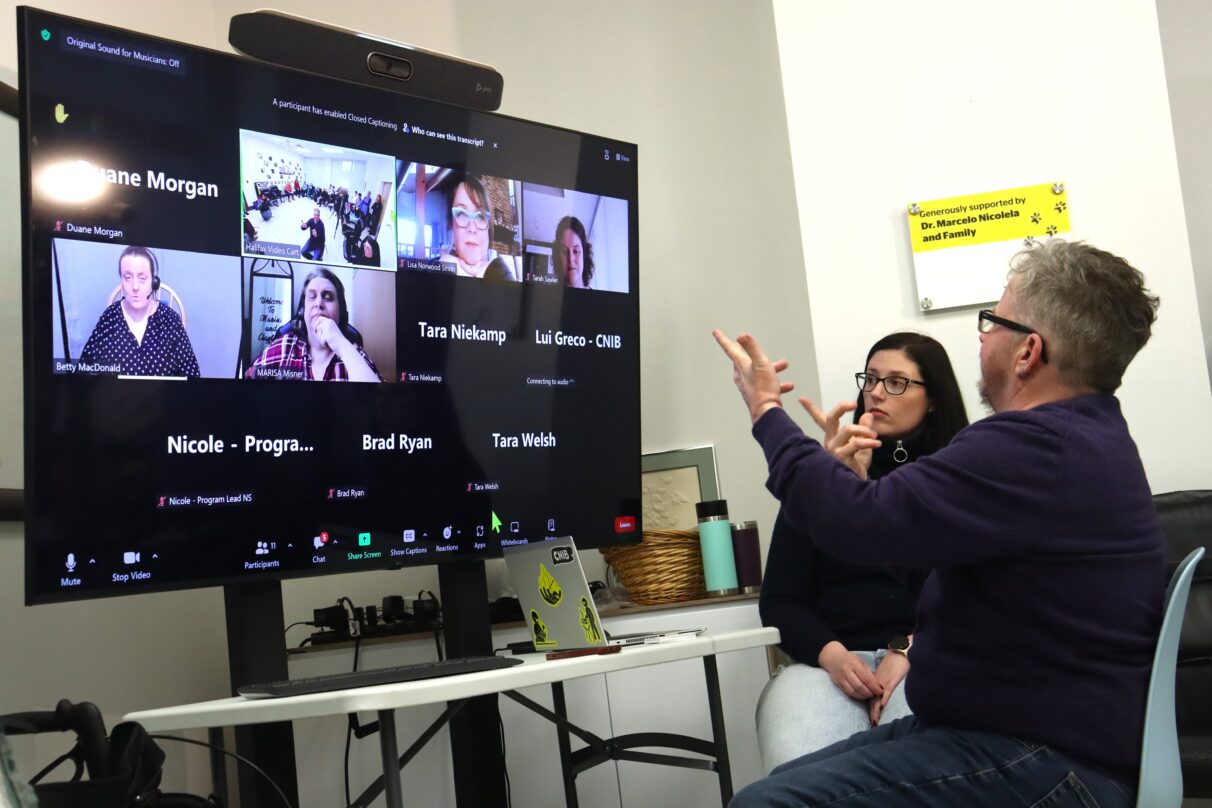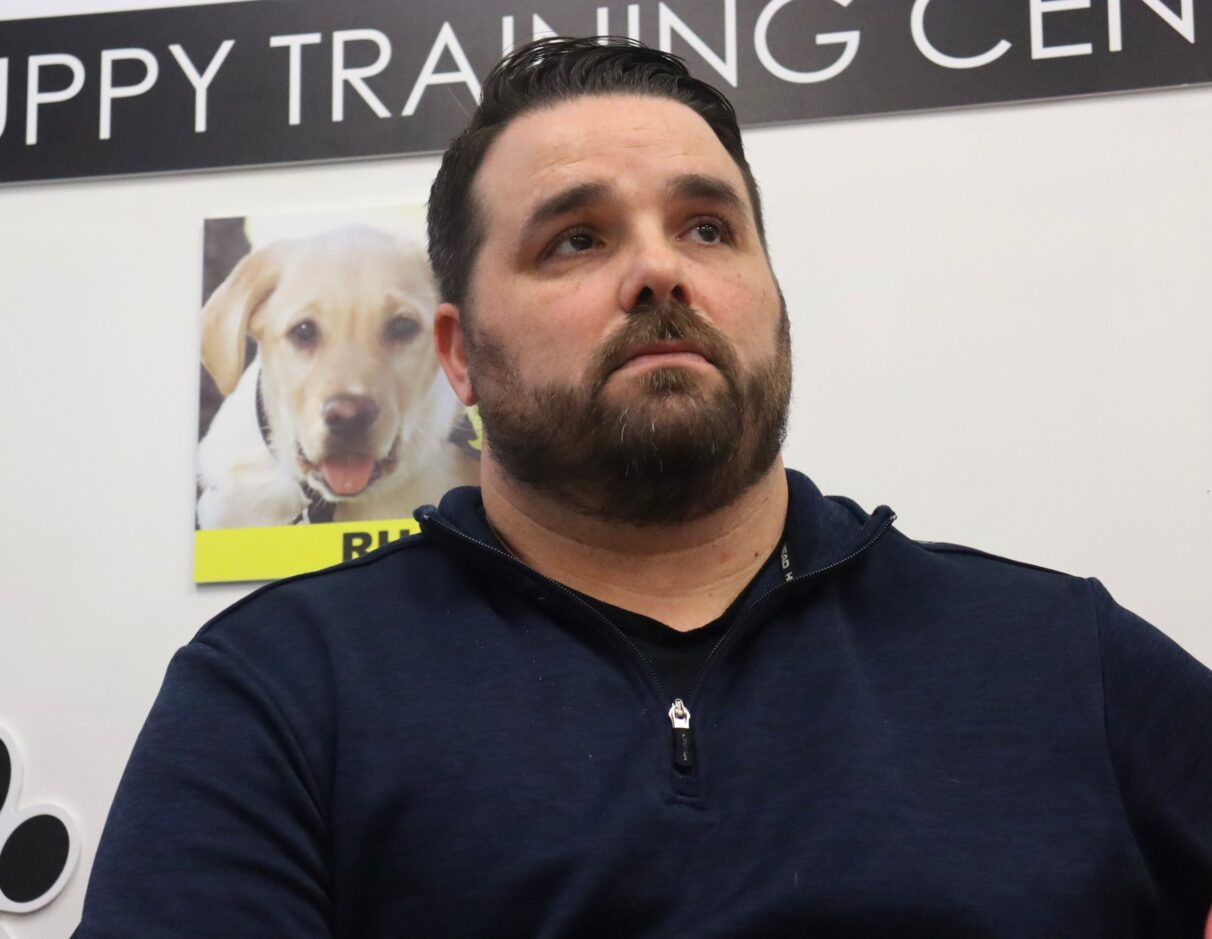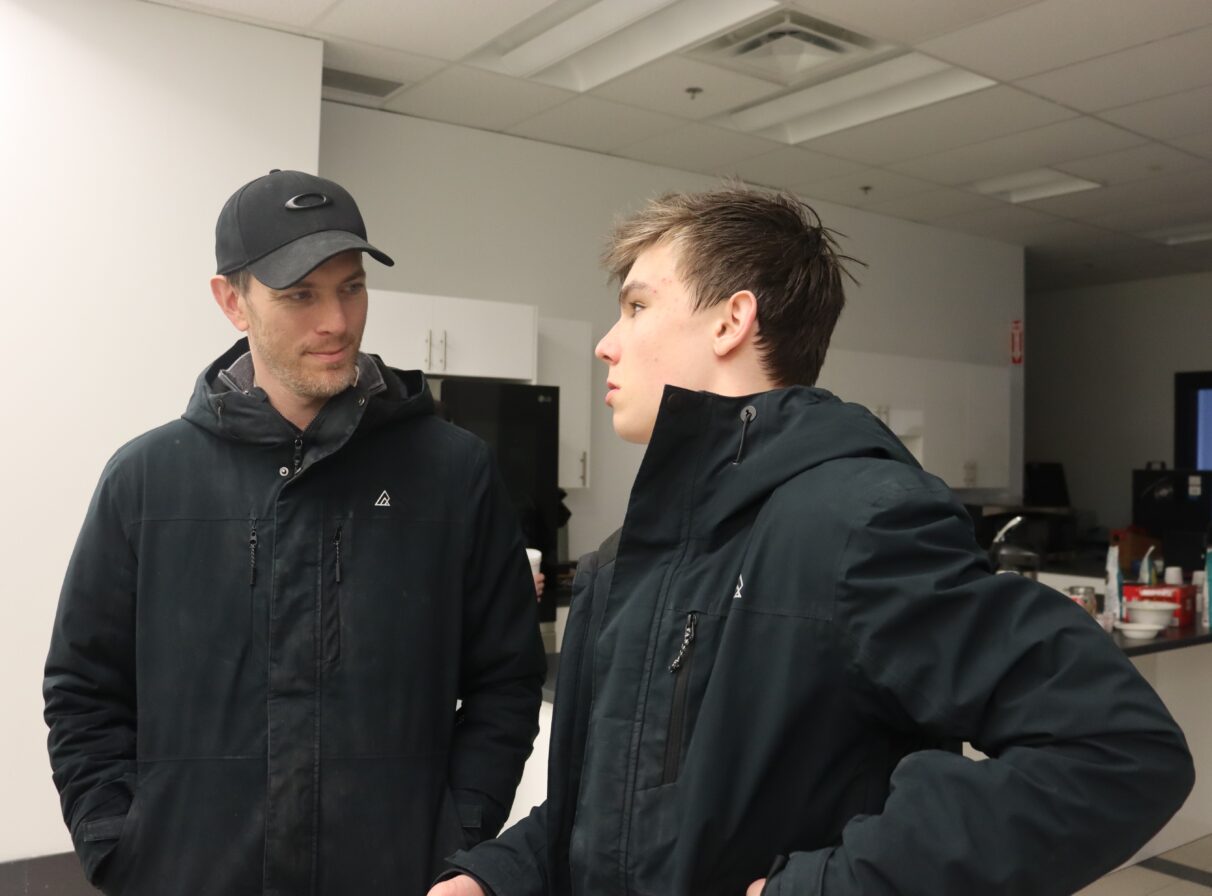Families of blind children oppose cuts to assessments and programming
Atlantic Provinces Special Education Authority stops partial services for blind students

caption
Meaghan Mamye tells other attendees at Saturday's meeting that online short-term programs won't help her son.More than 30 visually impaired students, parents and supporters gathered last Saturday to protest service changes at an agency that assists visually impaired students.
The group gathered at the Halifax offices of the Canadian National Institute for the Blind (CNIB) to voice their opposition. They say the Atlantic Provinces Special Education Authority (APSEA) has cut in-person delivery of its short-term programs and eliminated psychoeducational assessments for blind and partially sighted children.

caption
Sign language interpreters relay conversations in a meeting via Zoom to people who cannot be on site during Saturday’s demonstration.“Our children, who are already at risk of being marginalized, more because of the loss of these services, they’re struggling in the classroom and they’re struggling in life,” Meaghan Mamye, one of the parents and organizers of the meeting, said.
“They don’t know the skills, the ways that they used to. The service was provided, but they [APSEA] took it away.”
APSEA is an interprovincial co-operative government agency serving children and youth who are deaf, hard of hearing, and blind or visually impaired. In its short-term programs, APSEA teachers trained visually impaired students in essential skills for independent living and travelling in the community, such as navigating streets and sidewalks, reading braille, using kitchen appliances safely and cleaning effectively without sight.
APSEA moved these programs online when the COVID-19 pandemic started. Parents and students said they wanted to resume in-person teaching in May 2022 and again in December 2022. But APSEA has insisted on delivering the program online despite the pandemic ending.
A family’s concern
Meaghan Mamye and her husband Rick Mamye participated in the CNIB meeting to advocate for their Grade 3 son who has sight loss. The Mamye family feels the online teaching model won’t work for their son.
“These kids, they’re either blind or have really low vision,” Meaghan Mamye said.
A Zoom meeting can’t replicate the feeling of navigating an icy street, she said.
Mamye is worried about how her child navigates icy winter conditions, including where the snowbanks are.
When the short-term programs were ongoing in person, APSEA teachers, who were also visually impaired, would walk with children to a destination. Teachers taught them how to feel the icy road and avoid slippery spots. Children practised the skills, communicated and improved with their peers.
Mamye said that as people who are fully sighted, she and her husband cannot replace the role of these teachers.
APSEA also cut psychoeducational assessments where professional psychologists evaluate the core academic skills of visually impaired children. The results are then shared with the child’s schoolteacher, who can accommodate them accordingly. This ensures these children are treated fairly and don’t fall behind their peers.
“Seventy per cent of children who are blind or visually impaired have an additional learning disability. My son falls in that category. We can’t get the assessment to properly identify what kind of resources would be required to close that gap because there are no specialized teams to deal with the assessment for blind, vision impaired kids,” Rick Mamye said.
“My biggest concern: is my child gonna be left behind?”

caption
Rick Mamye listens to others speaking in Saturday’s meeting.Student feels isolated
Harry Nickerson, 14, was diagnosed with a vision disorder five years ago. He was told his vision would slowly deteriorate over time.
“When I was diagnosed, I felt very alone and that no one my age understood what I was going through,” Harry said.
Prior to the pandemic, the short-term programs required that students live together for a week in a residence. Harry said he regrets not having the chance to spend his time with peers at this vulnerable time in his life.
“Getting rid of short-term programs has been detrimental to the mental health and emotional health, physical and even social side of all blind students in the Atlantic provinces,” he said.

caption
Harry Nickerson talks with his father Adam Nickerson at the lounge in CNIB Halifax.Support from former student
Caelin Lloyd, a partially sighted person and former student of APSEA, understands the need for APSEA’s programs for families of blind children because he physically accessed most short-term programs before the pandemic.
“My experience with APSEA has been overwhelmingly positive,” Lloyd said. “Really, we’re hoping that APSEA will realize their missteps and reinstate these vital programs. Without those programs, there will be a lot of blind and partially sighted youth who don’t have the skills to be successful after high school.”
APSEA superintendent Lisa Doucet wasn’t available for an interview but sent a statement to the media.
In the statement, she says some skills trainings in short-term programs are now available online or embedded in other programs APSEA offers and in the general education system. This change was made to avoid gaps between students and their classmates because the in-person programs require students to leave their hometowns and schools to APSEA’s Halifax residence.
The statement also said APSEA continues to arrange in-person learning opportunities and weekly virtual learning to facilitate connections among students.
About the author
Xixi Jiang
Xixi Jiang, who often goes by Jacky, is from China. She’s a fourth-year student in BJH program at the University of King’s College.
